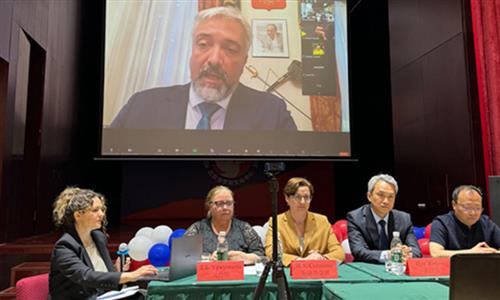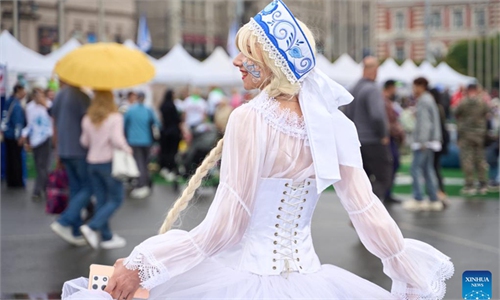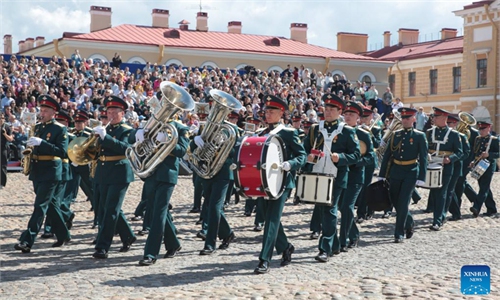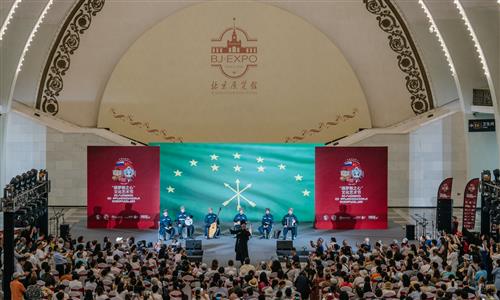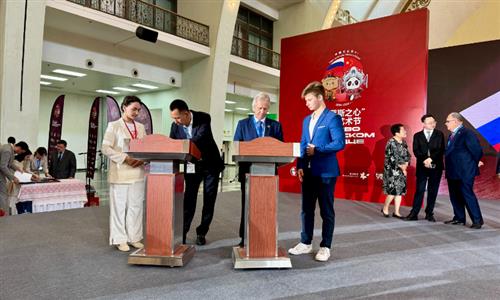ARTS / CULTURE & LEISURE
'Russian Heart' festival aims to boost Russia-China cooperation
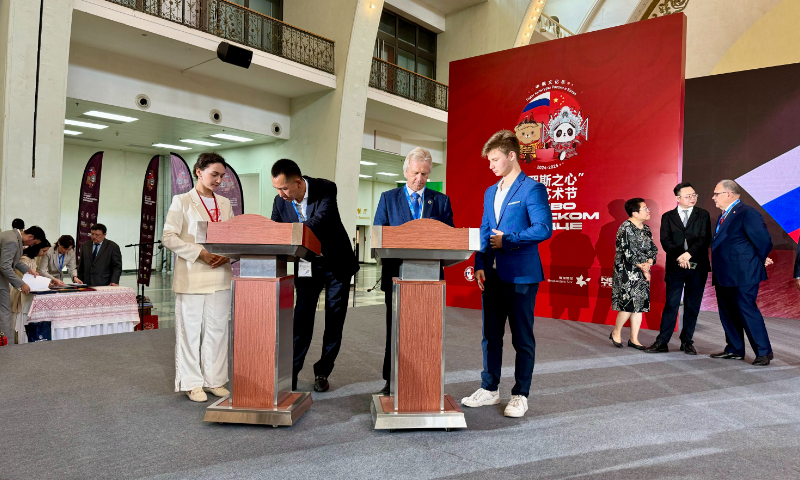
Chinese and Russian businesses representatives sign agreements at the culture and art festival in Beijing on Friday. Photos: Dong Feng/GT
As part of the 75th anniversary celebrations of the establishment of diplomatic relations between China and Russia, the "Russian Heart" Cultural and Art Festival opened at Beijing Exhibition Center in Beijing on Friday. Artists and business leaders convened to develop business opportunities while exchange cultural heritage of the two countries.
Participants were offered a unique journey through Russian culture via fashion shows, gastro battles, concert programs, master classes, quizzes, and immersive performances.
The festival aims to develop the Chinese market with differentiated Russian products and create opportunities for Chinese investors.
Business opportunities
Irkutsk, one of the biggest regions in Russia, held an event for investment and business cooperation for Chinese visitors on Friday morning. Sitting in the southeast of the Central Siberian Plateau, which borders the mountain ranges of the Baikal area and the Eastern Sayan Mountains, the 774,800-square-kilometer Irkutsk Region is nicknamed the "center of the Earth."
Igor Kobzev, governor of Irkutsk, said in his keynote speech that the region has enormous resources for tourism. For instance, it is the home of the world's deepest lake, Baikal. Lake Baikal contains 20 percent of the world's total unfrozen freshwater reserves. Through the water, tourists can see rocks 40 meters below, he said.
In addition, Irkutsk has rich natural resources, including gold, oil, and natural gas. The region also has great potential for industrial development, Kobzev said.
In 2011, China became a major trade partner of the Irkutsk region and this has continued since then. About 71 percent of the region's foreign trade volume is from China, Kobzev noted, and there is potential for further cooperation.
"Under the leaders of our two countries, we have seen significant growth in trade and economic cooperation. We have also made achievements in cross-border transportation and humanities," said Kobzev.
Cooperation agreements have been signed between Irkutsk and cities such as Beijing, Harbin, Shenyang, Chongqing, Ningbo and Tianjin. Companies in the region will not only increase export supplies to China, but also implement joint investment projects.
While talking to the media, Kobzev told the Global Times that the regional government will create conditions for all investors, whether "the project is big or small."
The region will provide all necessary tools and mechanisms to offer consultation and support. Irkutsk is willing to discuss cooperation in sectors including infrastructure, agriculture, mechanical equipment manufacturing, wood processing and tourism, he said.
At least 10 cooperation agreements were signed at the festival on Friday morning.
In her speech, Wu Wanlan, vice chairwoman of the China Council for the Promotion of International Trade (CCPIT), said that the potential for cooperation is huge. The CCPIT will foster a collaborative environment and lay solid foundations for partnership.
Cultural exchanges
Kobzev said that the investment projects in Irkutsk are expected to inject new impetus for bilateral ties. "We will step up efforts in fostering communication and exchanges in our cultures and in the humanity sector."
Briefing the media about educational resources, Kobzev said that with 16 scientific research institutions and 23 universities, there are more than 1,000 Chinese students in Irkutsk, which also offers great job opportunities.
The regional government is working on more projects to enhance cultural exchanges between the two peoples through printed bilingual materials and cooperation between universities.
Minister of Culture of Irkutsk Olesya Polunina told the Global Times that museums in the region are collecting more China-related exhibits and the number of such items has reached at least 1,000.
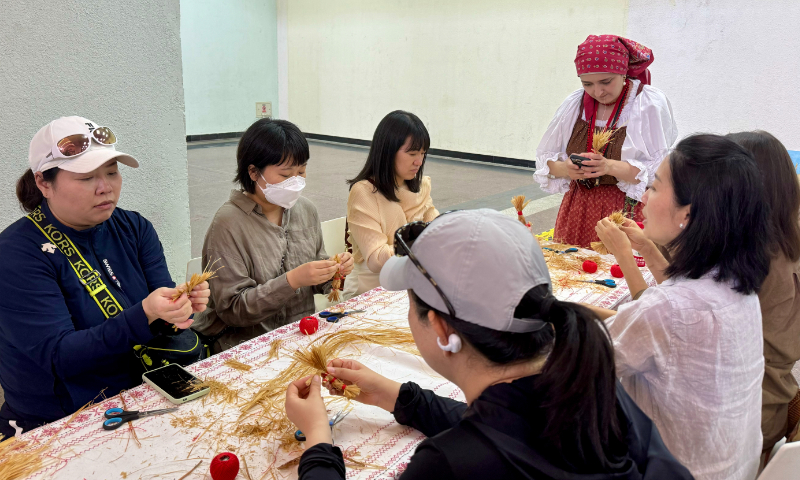
Visitors engage in hands-on activities at Russian exhibitors' booths in Beijing on Friday. Photo: Dong Feng/GT
Polunina said that picture albums that introduce Russian and Chinese traditional art and design have been prepared for the festival.
A youth philharmonic orchestra will perform on Friday evening, featuring music from both countries. Some training programs have also been planned for cultural relic protection, she noted, saying that more cultural exchange activities will be organized.
The organizers of the festival told the Global Times that the event aims to feature both traditional and modern elements in Russian culture. The purpose is to enhance understanding between the two peoples, and to appreciate each other's culture.
Mikhail Ivanov, head of the Center of Creative Industries "The New Town," a non-commercial organization, told the Global Times that the festival brings "more than 800 people from Russia, including participants and exhibitors. Russia is a huge country. Here we try to represent different parts of Russia. We have different activities and artists, with the Beijing Exhibition Center as one of the main locations, as well as other shows in Beijing."
"Our projects are dedicated to tourism. The main idea for the festival is to make contacts and connections between Russian and Chinese people, so that musicians can grasp this opportunity to make friends with their counterparts in China, and so that businessmen can find partners in China," said Ivanov
He said that it will be great to see the activities during the festival, and that there will be a fruitful outcome and tangible results.
